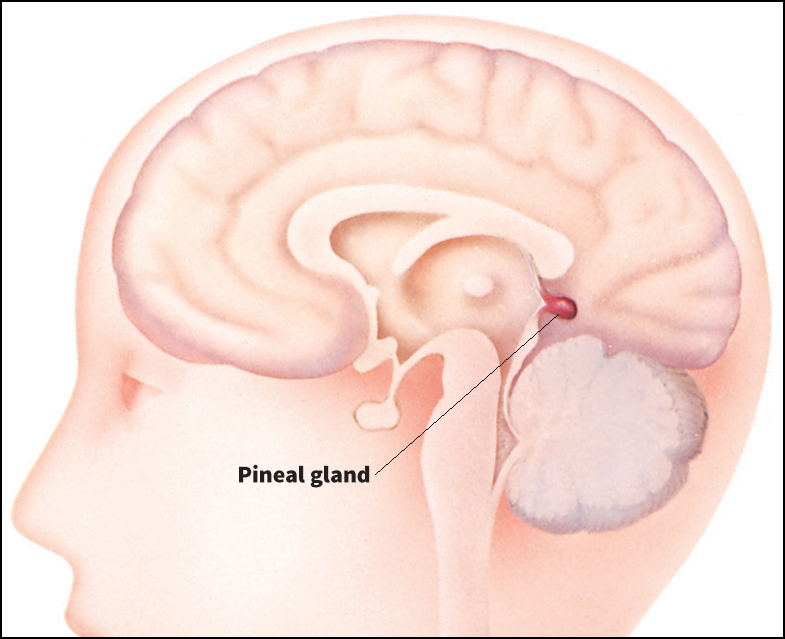Pineal, << PIHN ee uhl, >> gland, also called pineal body, is a tiny organ in the brain of human beings and most other vertebrates (animals with a backbone). Scientists are uncertain of the function of the pineal gland in human beings. They believe it plays a role in a variety of important body functions, including certain reproductive processes. In most other vertebrates, the pineal gland helps regulate certain daily body cycles, called circadian rhythm, and seasonal body cycles.

The pineal gland secretes a hormone called melatonin. Its production of melatonin varies with periods of light and darkness in the environment. In most amphibians, birds, fishes, and reptiles, the gland is located in the back of the head just beneath the skin. It responds directly to light that penetrates the skin. In mammals, including human beings, the pineal gland lies near the center of the brain. It obtains information about light in the environment by means of nerve pathways originating in the eyes. In general, light slows and darkness stimulates the pineal gland’s production of melatonin. Therefore, the gland tends to secrete small amounts of melatonin during the day and large amounts at night.
In most vertebrates, the pineal gland’s secretion of melatonin keeps the animal “timed” to its environment. Most animals live under conditions where the daylength and the temperature of the environment change throughout the year. To survive, they must breed at certain times of the year, usually spring or early summer. The offspring will then have a chance to grow strong enough to survive the first winter. The pineal gland keeps track of the changing daylengths. By means of its melatonin, it sends this information to the body and appropriate reproductive responses are made.
In human beings, melatonin helps regulate the sleep cycle and also has been linked to the onset of puberty, the stage of life when a person matures sexually. Studies have shown that the pineal gland’s nightly secretion of melatonin decreases when a boy or girl reaches puberty. Other studies have indicated that melatonin may help regulate menstrual cycles in women and sperm production in men. In addition, researchers have suggested a connection between melatonin levels and certain mental illnesses.
See also Melatonin .
